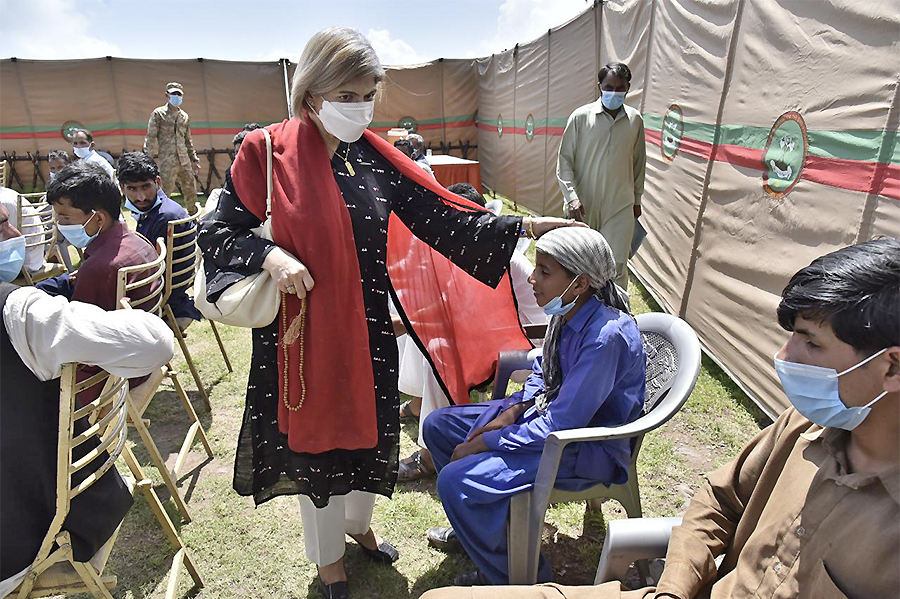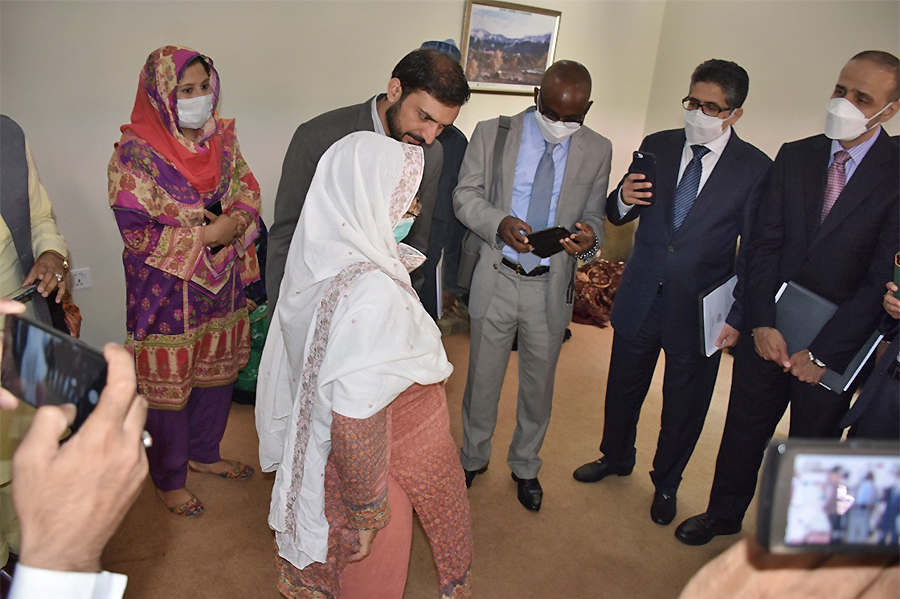ISLAMABAD: A delegation from the Organization of Islamic Cooperation (OIC) visited the Line of Control in Azad Kashmir on Saturday to assess the human rights situation in Indian-administered Kashmir, the Pakistani military’s media wing said in a statement.
The 12-member delegation of the OIC’s Independent Permanent Human Rights Commission (IPHRC) were “given a comprehensive brief on the prevalent security environment along the LOC,” the Inter-Services Public Relations agency (ISPR) said.
It added that they were also apprised of the “elaborate arrangements made for protection of civilians from hostile fire in any eventuality through the construction of community bunkers.”

Organization of Islamic Cooperation representatives visit refugees from Indian-controlled Kashmir at a camp in Muzaffarabad, Pakistan's Azad Jammu and Kashmir on August 6, 2021. (Photo courtesy: AJK government)
Kashmir has been a flashpoint between Pakistan and India since the partition of the subcontinent in 1947, with both claiming the region in full but ruling it in part. The LoC is the de facto border that divides Kashmir between India and Pakistan that have fought two of their three wars over the region.
Tensions spiked in August 2019 after New Delhi abrogated Kashmir’s special autonomous status, dividing the region into federally administered territories.
The IPHRC has been urging India since September 2019 to allow its fact-finding mission to Kashmir, but New Delhi has not responded until now.
The commission decided to visit Pakistan-administered Kashmir and assess the situation, starting their six-day trip on Wednesday.
On Saturday, members of the OIC delegation interacted with locals of “cease-fire violations, members of village defense committees and civil administration,” the statement said.
“The delegation thanked the Pakistan Army for providing the opportunity to witness the ground reality and for better understanding of the situation along LOC,” it added.

A delegation of the OIC’s Independent Permanent Human Rights Commission (IPHRC) is visiting a refugee camp at Thotha, Muzaffarabad, on August 6, 2021. (Photo courtesy: AJK government)
Earlier this week, on Friday, Azad Jammu and Kashmir (AJK) President Sardar Masood Khan called upon OIC member states to “establish a humanitarian corridor to aid the people of Indian-administered Kashmir.”
Khan made the appeal while talking to the OIC-IPHRC delegation, which includes diplomats and representatives from the United Arab Emirates, Uganda, Nigeria, Malaysia, Saudi Arabia, Azerbaijan, Gabon, Tunisia, Turkey and Morocco.
He also thanked the OIC for its “courageous and steadfast support for the right of the people of Jammu and Kashmir to self-determination,” adding that there were around 42,000 refugees from across the divide in AJK, with a majority residing in or around the capital, Muzaffarabad.
“He also demanded immediate steps by OIC to provide emergency assistance to the beleaguered Kashmiris who have been suffering for the past two years by providing scholarships to Kashmiri students studying in Occupied Kashmir, AJK, Pakistan and other countries...to continue their education,” a statement issued by his office said.
The OIC is the world’s second-largest intergovernmental body after the UN, comprising 57 member states.
















